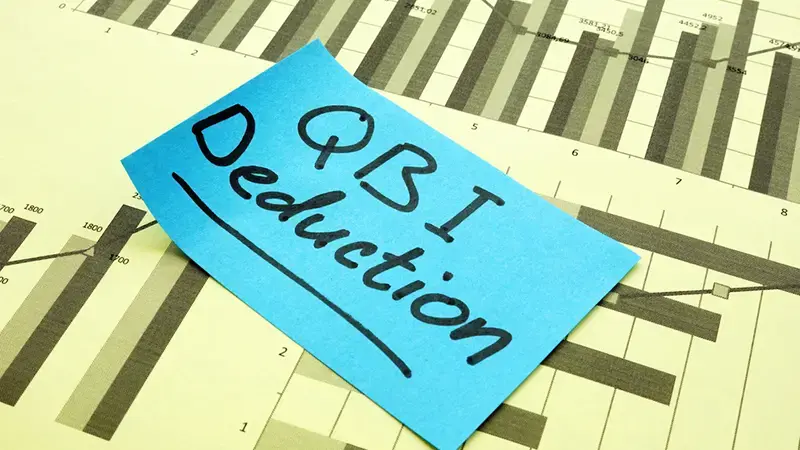Expat Tax Planning: Navigating International Taxation with Confidence
Facing the challenge of expat tax planning? Simplify your approach with this essential guide. Learn to navigate U.S. tax rules, claim rightful...
Having a mortgage allows you to lower your taxable income by deducting the amount of mortgage interest you've paid throughout the year. It's important to maintain accurate records, as the interest on your home loan can potentially reduce your tax bill.
In general, you can deduct the mortgage interest you paid during the tax year on the first $750,000 of your mortgage debt for your primary home or a second home. If you are married and filing separately, the limit drops to $375,000.
The mortgage interest deduction allows you to deduct the interest paid on the first $750,000 of mortgage debt. To claim this deduction, you will need to itemize on your tax return.
If you purchased your home before Dec. 16, 2017, you can deduct the interest paid on the first $1 million of the mortgage ($500,000 if married filing separately).
There is an exception to the Dec. 15, 2017, cutoff: If you had a written binding contract before that date to close before Jan. 1, 2018, and you closed on the house before April 1, 2018, the IRS considers your mortgage to be obtained before Dec. 16, 2017.
If you obtained an $800,000 mortgage to purchase a house in 2017 and paid $25,000 in interest on the loan in 2023, you may be able to deduct the entire $25,000 of mortgage interest on your 2023 tax return. However, if you obtained an $800,000 mortgage in the same year, the deduction may be slightly lower. This is because the 2017 Tax Cuts and Jobs Act limited the deduction to the interest on the first $750,000 of a mortgage.
IRS Publication 936 provides in-depth information on qualifying mortgage interest, and here's a concise summary for your reference.
A second home is not required to be occupied throughout the year; however, it must act as collateral for the loan. Should you choose to rent out the second home, you are required to occupy it for a minimum of 14 days or for more than 10% of the total number of days during which it is rented.
Points represent prepaid interest on your loan, allowing you to deduct them gradually over the mortgage's lifespan or all at once if you meet specific requirements.
These requirements generally include the mortgage being for your primary residence, points being a common practice in your area, points not being excessively high, using the cash accounting method for taxes, points not covering closing costs, a higher down payment than the points, points calculated as a percentage of your loan, points listed on your settlement statement, and not being paid instead of other items on the statement like appraisal, inspection, title, or attorney fees, or property taxes.
In the American mortgage system what cannot be deducted is:
Homeowners insurance.
Extra principal payments you make on your mortgage.
Title insurance.
Settlement costs (most of the time).
Deposits, down payments, or earnest money that you forfeited.
Interest accrued on a reverse mortgage.
Mortgage insurance premiums.
If you paid more than $600 in mortgage interest last year, be on the lookout for a Form 1098 from your mortgage lender in the upcoming weeks (early 2024). The IRS will also receive a copy of this form. Homeowners typically report the amount on line 8a of Schedule A (Form 1040). However, the allowable deduction amount may vary in certain situations, such as if the property does not meet the criteria of a qualified home.
To claim the mortgage interest deduction, make sure to itemize your deductions on Schedule A. Compare the total of your itemized deductions, including mortgage interest, to the standard deduction amount for your filing status. Only choose to itemize if your total deductions exceed the standard deduction.
For more information about claiming the mortgage interest tax deduction, see IRS Publication 936.
Tax-related content
At H&CO, our seasoned team of tax professionals is well-versed in the intricacies of income tax preparation and is committed to navigating you through the process. Boasting offices in Miami, Coral Gables, Aventura, Tampa, Orlando, and Fort Lauderdale, our certified public accountants (CPAs) stand ready to support you with all your income tax planning and preparation requirements.
To learn more about our accounting firm services take a look at our individual tax services, business tax services, international tax services, expatriate tax services, SAP Business One, entity management, human capital, and audit and assurance services.
.webp)
Facing the challenge of expat tax planning? Simplify your approach with this essential guide. Learn to navigate U.S. tax rules, claim rightful...

The Qualified Business Income (QBI) deduction, also known as the pass-through deduction or section 199A deduction, was established by the 2017 Tax...

As the owner of a foreign corporation with U.S. business activities, you have specific tax filing obligations in the United States. One of these...
.webp)